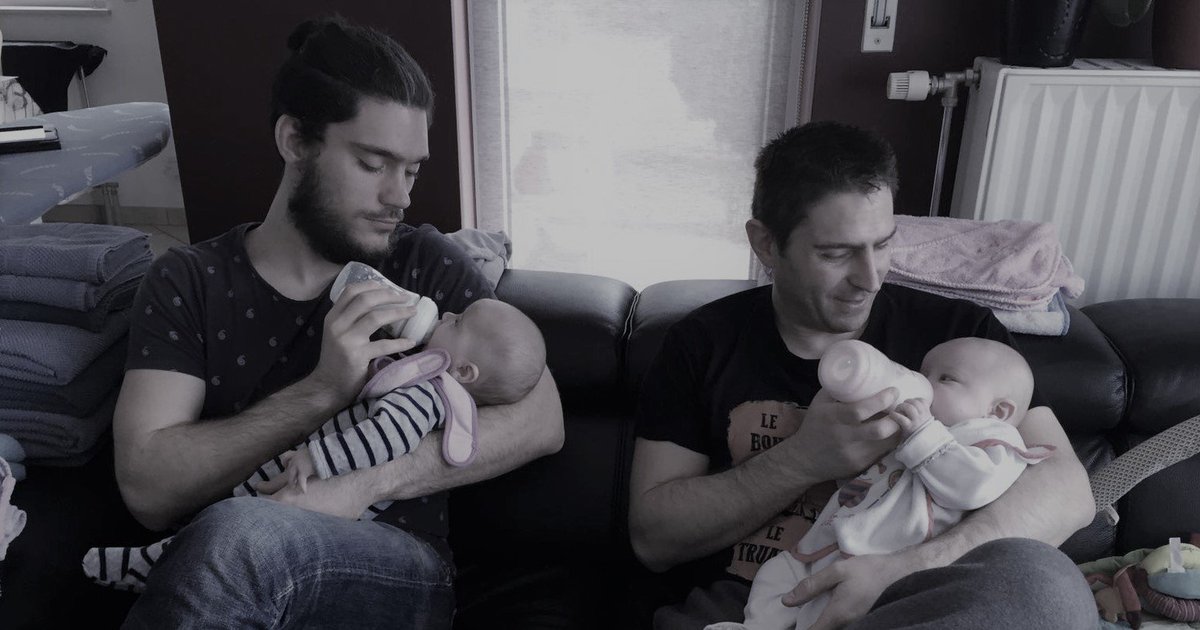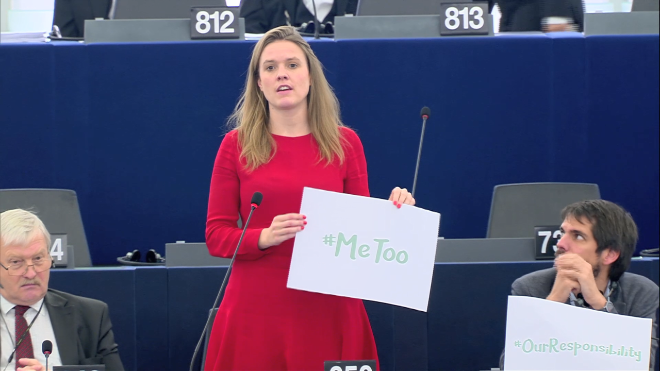Helena Seibicke:

- Doctoral Research Fellow who submitted her PhD thesis "The European Women’s Lobby: Advocacy in the EU’s Discursive Opportunity Structure " in February 2018.
- Academic interests include lobbying and advocacy in the EU, deliberative and political communication theory, EU civil society and gender issues, and European public policy.
- Previously worked for several years in Brussels for the European Parliament, an interest organisation and a public affairs agency.
Helena, congratulations on the International Women's Day! How is Women’s Day celebrated around Europe?
- Thank you! International Women’s day is a global day celebrating the social, economic, cultural and political achievements of women. It has its roots in the socialist women’s movement of the early 20th century, and was celebrated in Norway for the first time in 1915. While it was first connected to issues like votes for women in Europe, it is now an opportunity to call for gender equality and equal rights globally. The day is usually marked by local activist events, such as marches, rallies, conferences, concerts - to name just a few.
While it was first connected to issues like votes for women in Europe, it is now an opportunity to call for gender equality and equal rights globally.
So what would you say are the most prominent gender related challenges in Europe today?
- Women in Europe have made a lot of progress since first organizing the International Women’s Day. However, there are still deeply concerning issues which negatively affect a wide range of women’s life experiences. They include harassment, gender-based violence, the pay and pension gap, inequality in the work place and precarious work conditions, unequal care responsibilities, that mean that women still do not enjoy equal rights to this day. The financial crisis and subsequent austerity have hit women and children the hardest and I have found in my research that women’s advocates have been increasingly side-lined with the argument that gender equality measures are too costly and burdensome for member states to implement.
...women’s advocates have been increasingly side-lined with the argument that gender equality measures are too costly and burdensome for member states to implement.
How has the Weinstein scandal and other revelations of sexual harrasment affected the women's movement in the EU?
- Over the last year we can observe a re-energized grassroots women’s movement in some European countries. Campaigns like #metoo and #timesup have put the decades-long struggle for women’s right in the spotlight and the public is starting to pay attention. But whether this will lead to more long-term attitudinal shifts and concrete political changes remains to be seen.
Campaigns like #metoo and #timesup have put the decades-long struggle for women’s right in the spotlight and the public is starting to pay attention.

For the last four years you've studied women advocacy in the EU. Does the EU actually have a gender equality policy?
- Yes, gender equality is today recognized to be a fundamental right in the EU, but its definition has actually evolved since the inception of the European Community. While it was first limited to equal treatment, especially equal pay, it now has a broader meaning and judicial basis, including equal access to employment and social security, equal pay, and anti-discrimination in general. Overall, gender equality is defined in relation to the EU’s social regulatory policies. The EU has only limited competencies on social issues such as employment and social policies.
Gender equality is today recognized to be a fundamental right in the EU.
- Initiatives to push the gender equality agenda forward often meet resistance from member states and powerful interest organisations. For example, attempts to introduce mandatory maternity leave with guaranteed full pay have been thwarted by member states. So the reconciliation of economic goals and gender equality norms have been the main obstacle to furthering women’s rights.
Initiatives to push the gender equality agenda forward often meet resistance from member states and powerful interest organisations.
Are Norwegian gender related policies affected by the EU?
- Norway is not a member of the EU, but through the EEA agreement, Norwegian authorities have long been aligned with EU laws and policies. When equal pay laws, quota rules, rules for gender pay, admission to education, gender equality and anti-discrimination rules are drawn up in Norway, the EU sets the legal rules of what can or cannot be done. So we can speak of a top-down Europeanisation of Norwegian gender policies.
...we can speak of a top-down Europeanisation of Norwegian gender policies.
- In my research I have also found this to take place at the movement level, where a Norwegian Women’s Lobby has been established to closer cooperate and participate in the organised European women’s movement, which comes together under the umbrella of the European Women’s Lobby. Such interaction can lead to the transfer of knowledge, best practices and norms.
...a Norwegian Women’s Lobby has been established to closer cooperate and participate in the organised European women’s movement...

How strong is the women’s movement in the EU?
- The European Women’s Lobby (EWL) is really the most prominent women’s organization with the largest membership active in Brussels. They promote women’s rights and gender equality through their Brussels-based secretariat, and at national level through more than 2000 member organisations. The EWL is the main actor when it comes to representing women’s interests in EU policy-making through lobbying, providing information and gender expertise.
The European Women’s Lobby is really the most prominent women’s organization ... in Brussels.
But do they have an actual say in EU affairs?
- The EU institutional structure allows for civil society input, but those who wish to make an impact need to adapt to this structure which can disadvantage grassroots groups that are weak in terms of human and financial resources. In Brussels, there are currently several initiatives, networks, associations and organisations originating from different sectors with different missions working broadly towards redressing gender inequality. They are not, however, very well-networked or mobilized in a concerted effort. So even though the EWL is a well-established group it really is the only group specifically advocating for women’s rights at the EU-level, which does not really make for a broad and powerful movement.
...it really is the only group specifically advocating for women’s rights at the EU-level, which does not really make for a broad and powerful movement.
You yourself lived for several years in Brussels. Was #metoo long overdue, also in the (in)famous "EU Bubble"?
- I worked in Brussels about 10 years ago. While I never personally experienced sexual harassment, I know the kind of power asymmetries between men and women, as well as senior and junior level staff. As a young person trying to establish a career in politics, one can be very dependent on informal recommendations and contacts in the small ‘Brussels bubble’. Junior staff working as assistants, trainees or unpaid interns under precarious contracts are particularly vulnerable to psychological abuse and exploitation.
As a young person trying to establish a career in politics, one can be very dependent on informal recommendations and contacts in the small ‘Brussels bubble’.
- With the #metoo campaign, more and more women at both junior and senior level have been coming forward with experiences of sexual harassment and assault. There are some really bad stories out there! The European institutions have neglected a sexism problem that has been pervasive in Brussels for years. And even though the European Parliament has passed a resolution on combating sexual harassment and abuse in the EU, the problems will have to be tackled in terms of changing behaviours and mindsets, as well as protecting the victims and punishing the perpetrators.
The European institutions have neglected a sexism problem that has been pervasive in Brussels for years.
